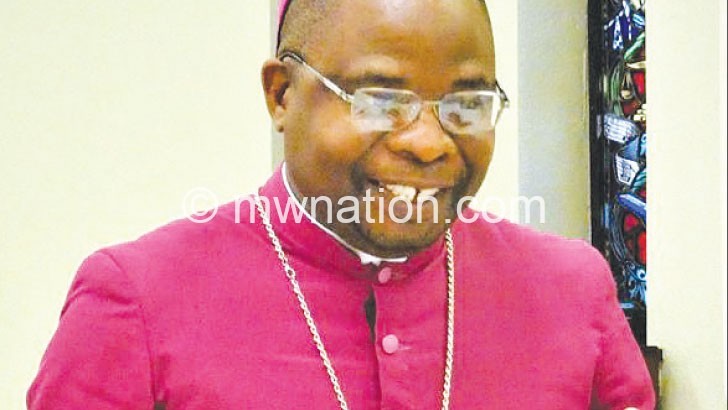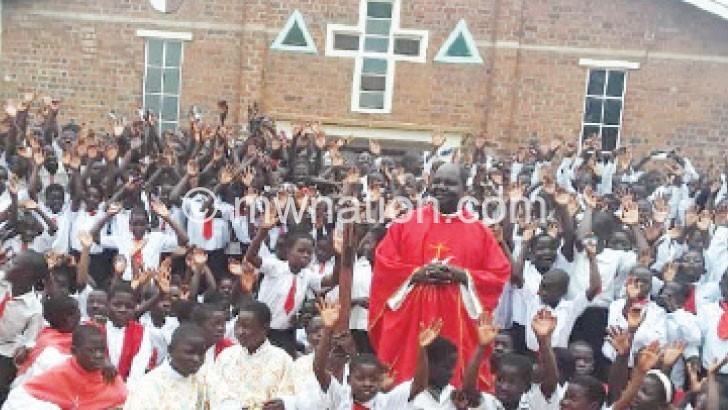Has religion failed to unite us?

“…join together all our hearts as one; thus, we be free from fear.
Bless our leaders, each and everyone, and Mother Malawi.”
Reading from the last lines of the country’s national anthem, one can easily see a nation that is divided, but ready to unite with God’s intervention.
We may choose to wish it away, but it will remain a fact that our differences in race and ethnicity have at times been enough reasons for us to engage in a disagreement of some sort.
Malawi too is divided along race, culture, tribe, ethnicity, regionalism, politics, among others and the running battles between Ngomano and Wilson Villages in Thyolo district bear testimony to this. These are people of the same tribe and culture [and possibly of the same lineage], but failing to agree on chieftaincy issues; resulting into fierce battles that have sometimes left innocent and frail people seriously injured.
He might have died decades before the beginning of the chieftaincy wrangles in Thyolo, but, Michael Sauka, the composer of Malawi’s national anthem had envisioned these divisions.
As a man who believed in God, he thought the best way man can seal his grievances against fellow man is through seeking God’s intervention.
To date, religion continues to be touted as a powerful weapon for defeating the devil who is largely to blamed for all the chaos and plunder that happen on earth.
Religion started with Abraham and more than a century has passed now since it [Christianity, Islam, Bahai Faith, and Hinduism, among others] was introduced in Malawi.
Desperate for the unity Sauka desired, people of different ethnic, cultural and political backgrounds show a rare solidarity by gathering every Fridays [for Muslims], Sabbath Days [Seventh-Day Adventists] and Sundays [Christians of different faith groups] to praise and worship their Creator for various reasons.
Religion alone creates a feeling of belonging that can transcend ethnic loyalties.
Consequently, religion assumed a paradoxical function. It enabled the foreign conquerors to integrate into the majority society, while retaining their exclusive status.
This notwithstanding, cases of people maiming each other based on ethnic or racial differences are refusing to die all over the world.
Does this mean that religion has failed to seal our racial, political, social and cultural differences?
“I think it has [failed] and I don’t think it will ever succeed. In fact, religion has also contributed to the depth of our divisions in some cases,” says Zaccheus Mtika of Mgabanyika Village in the area of Sub Traditional Authority Kapopo Mhlanga in Mzimba.
He is, however, quick to blame differences based on religious backgrounds on some leaders who, he argues, interpret the Holy Books for personal interests.
A devout Catholic himself, Mtika wonders why there should be many Christian churches when all of them are worshipping the same God with the same Saviour, Jesus Christ.
“We have cases of ethnic divisions emanating from religious circles as leaders fight for positions. In such a situation, how do you expect religion to be of relevance in bringing unity among the people? Unless leaders lead by example, I don’t think religion will ever unite us,” he said.
Mtika shares his line of thinking with former Nigerian Prime Minister, Ahmadu Bello, who once cautioned Muslims and minority Christians in that country’s north to forget their religion and focus on uniting for a purpose—developing their nation.
Bello said at the time that his government was committed to the interests of all citizens.
“Here in Northern Nigeria … we have people of many different races, tribes and religions who are knit together by common history, common interests and common ideals. We have no intention of favouring one religion at the expense of another. Let us forget the difference in our religions and, remember the common brotherhood before God,” he urged.
But Pastor Favour Master of Living Waters Church thinks there is still room for religion to unite people of different races.
Pastor Master believes this is possible through promotion of intermarriages between and among people of different faiths, races, cultures and ethnic backgrounds.
He says through such intermarriages, Malawi can create a nation that is free from divisions along racial or cultural backgrounds.
“Unity should start from the church. Intermarriages could break the barriers that are there among people along racial or cultural considerations.
“Otherwise, we would be seen to be hypocritical in preaching unity among people when we are [silently] preaching racism and regionalism through our actions,” he explained.
Reverend Bannet Zimba takes a rather different approach to uniting people of different backgrounds.
Zimba, who serves the Mabiri Congregation of the Livingstonia Synod of the CCAP, thinks the first step to uniting people is to teach or evangelise to them about the will of God for the creation.
“You can’t force someone to change his line of thinking on race, religoin and culture. But if you take him or her through what the Holy Books are saying, they’d certainly see the reason for treating their next person with dignity and love.
“What is lacking in us is not unity, but rather love for each other,” he said.
Both Reverend Zimba and Pastor Favor agree on one thing on this topic:
It is not religion that has failed to unite people, but people themselves have failed to embrace the will of God for them.
“The will of God is that all people should live together in peace, love and harmony, regardless of racial, political and cultural backgrounds. And that is what unity is all about,” concludes Reverend Zimba.





